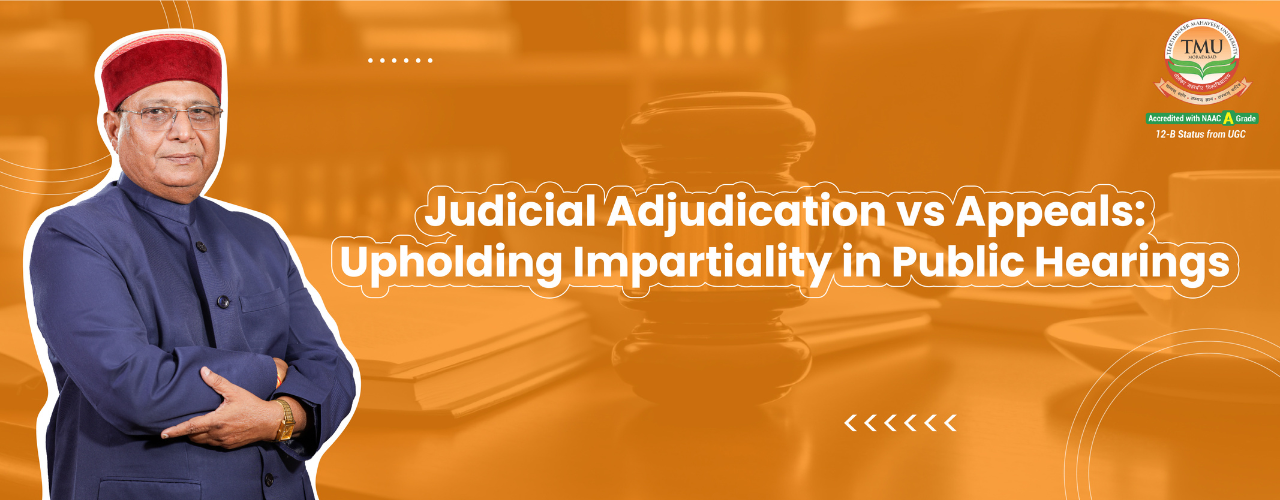Judicial Orders and Public Appeals: Preserving Trust in India’s Judiciary
Table of Contents
By Prof. (Dr.) Harbansh Dixit
Recent comments by two Supreme Court judges have sparked nationwide debate. They cautioned against public campaigns targeting judicial orders, labelling them as unacceptable in any civilised society. An objection was even raised by one judge, clarifying that such campaigns were not officially tied to judicial decisions but stemmed from anonymous sources, raising concerns about impartiality and freedom of personal opinion.
In India, the integrity and reputation of judges are considered sacrosanct and non-negotiable. While judges have personal freedoms, these cannot entail public defamation or interference with judicial dignity or the judiciary's collective standing.
Global Lessons: Public Advocacy and Judicial Authority
Worldwide, there have been notable instances where public campaigns challenged judicial orders:
- Dred-Scott Case (U.S.): Public clamour to reclassify Scott as a citizen enraged the nation. The Supreme Court reacted by firmly asserting that citizenship could not be retroactively conferred on a slave, reinforcing judicial independence.
- The eventual outcomes in the U.S.—the abolition of slavery (13th Amendment) and the extension of citizenship (14th Amendment)—did not rebuke the court, but rather resulted from constitutional reform rather than public pressure.
These examples underscore that public appeals affecting judicial decisions risk compromising true judicial authority.
Teerthanker Mahaveer University
Apply for Admission
Click Here To Apply for Admission
Why Judicial Integrity Cannot Be Undermined
In India, a judge’s role goes beyond interpreting the law—they deliver hope during crises like riots, droughts, or earthquakes. Their decisions cannot be subject to public campaigns or defamation. Even orders from the Chief Justice carry institutional weight.
Public questioning of judicial orders can diminish trust—erosion of this trust poses a greater threat than legal errors themselves. If judicial decisions become subject to public popularity, it undermines the bedrock of democratic governance.
The Slippery Slope: From Criticism to Political Pressure
Unlawful public rallies can turn public opinion into a destructive force, driven by slogans rather than legal substance. This risks transforming the judiciary into a political battleground.
Unchecked, such campaigns pave the way for demands against judicial accountability without due process—something wholly antithetical to democratic norms.
Maintaining a Delicate Balance
Judicial speech remains central to legal discourse, but must be free from public intimidation or reputation attacks. As history teaches us, even constitutional judges have faced pressure—yet public campaigns cannot become tools to lobby for judicial changes.
Hence, it is critical to ensure that judicial confidentiality is safeguarded and judicial autonomy is not swayed by emotion or populism.
Conclusion
In a vibrant democracy, judicial decisions and public discourse must coexist with mutual respect. While courts must be open to critique, public mobilisation against judicial orders undermines justice and institutional trust.
Judges, as custodians of law and societal stability, deserve protection from malicious campaigns. Upholding this principle is essential to preserving an impartial judiciary in India.
This content gives an overview of the programme and is for educational purposes only. For updated admission guidelines and counselling support, please connect with our Counsellor Team.














